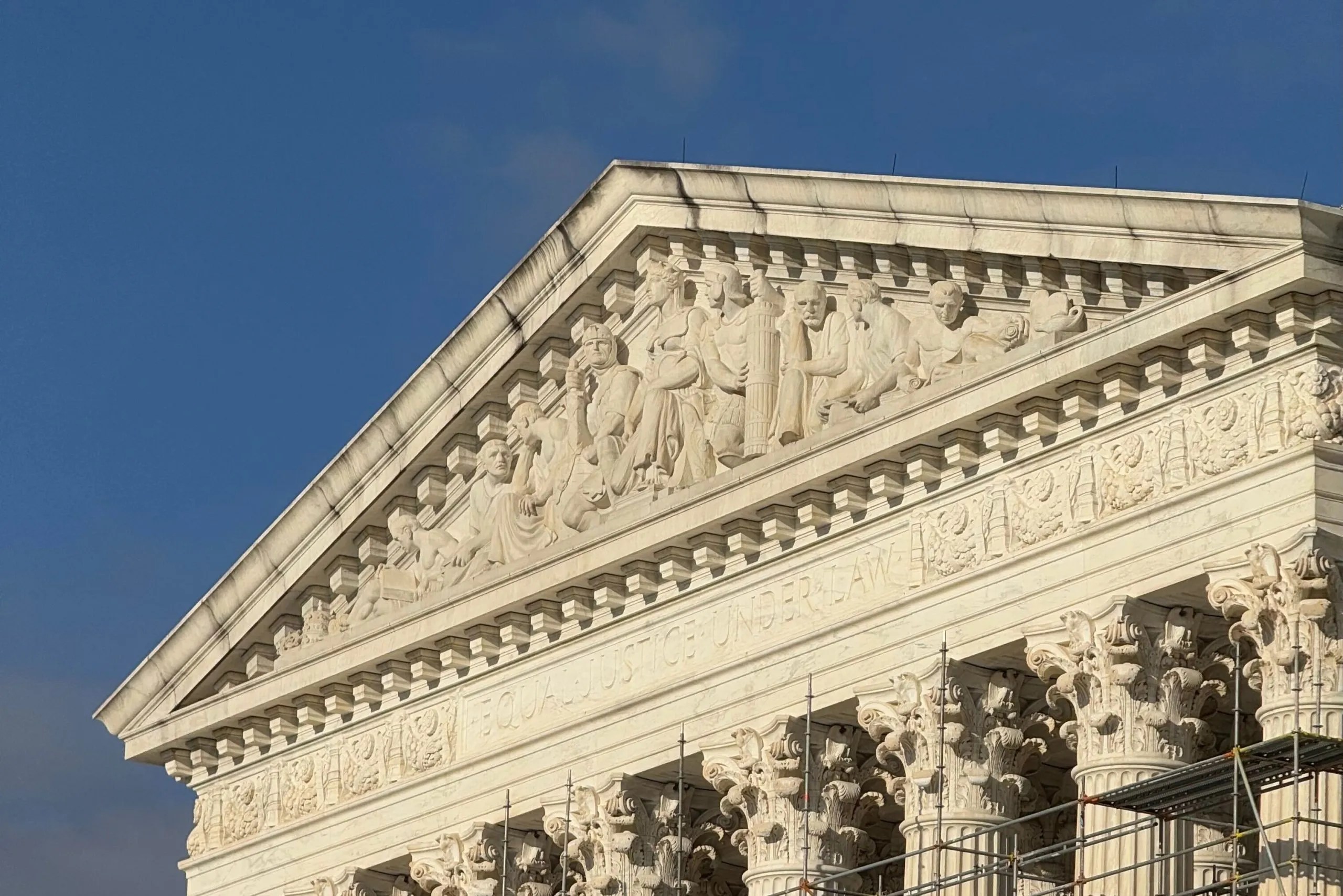SCOTUStoday for Monday, October 6



It’s the first Monday in October, and since 1917, that’s meant the Supreme Court is back in session. However, over the past 108 years, the justices haven’t always heard cases on the first Monday in October, as they will today. “Prior to World War II, the first day at court was mostly ceremonial and included a visit to the White House to see the President,” according to the National Constitution Center.
Morning Reads
- Legal setbacks mount for Trump’s birthright order before likely Supreme Court review (Michael Casey and Sudhin Thanawala, Associated Press) — A three-judge panel of the U.S. Court of Appeals for the 1st Circuit ruled on Friday that President Donald Trump cannot enforce his executive order that ended “automatic citizenship for the children of people in the country illegally or temporarily,” according to the Associated Press. Four other courts had previously “issued or upheld” similar decisions this summer, prompting the Trump administration to seek Supreme Court review of the birthright citizenship order in two of those cases. In a Friday statement, White House spokesperson Abigail Jackson criticized the 1st Circuit’s decision and “said the administration looked forward to ‘being vindicated by the Supreme Court.'”
- Justice Kavanaugh’s Would-Be Assassin Sentenced to 8 Years in Prison (Mattathias Schwartz, The New York Times) — U.S. District Judge Deborah L. Boardman sentenced Sophie Roske, “charged under her legal name, Nicholas J. Roske,” “to just over eight years — 97 months — in prison on Friday for a 2022 attempt to assassinate Justice Brett M. Kavanaugh,” according to The New York Times. Prosecutors had asked for a sentence of at least 30 years. “Judge Boardman’s explanation of her sentence restated some of the arguments made by Ms. Roske’s attorneys, who said that a lesser sentence was warranted because Ms. Roske, who had no prior criminal history, had abandoned her plan at the final moment, surrendered to authorities, told them about the plot and was genuinely remorseful.” Boardman also said “that a lower sentence was warranted because of an executive order issued by President Trump mandating that transgender women be held at male-only federal facilities, which she said could interfere with her continuing to receive gender transition care.”
- As justices confront harassment, death threats and an assassination attempt, Barrett declares “I’m not afraid” (Jan Crawford, CBS News) — After Friday’s sentencing, Jan Crawford at CBS News reflected a conversation she had with Justice Amy Coney Barrett about security concerns, recalling Barrett’s assertion that she’s “not afraid.” “You can’t live your life in fear,” Barrett said. “And I think people who threaten — the goal is to cause fear. And I’m not afraid. I’m not going to reward threats with their intended reaction.” She added that she’s learned to tune out criticism because criticism is inevitable. “I just think you have to know who you are,” Barrett said, “and make decisions that you decide are right, and stick with your priorities and not worry about the feedback you get from others, whether it’s negative or whether it’s positive.”
- Justice Samuel Alito says he is not calling for same-sex marriage ruling to be overturned (Lawrence Hurley, NBC News) — Justice Samuel Alito on Friday addressed the court’s 2022 ruling overturning Roe v. Wade, explaining that he doesn’t feel that it put “other key decisions … in the firing line,” according to NBC News. Specifically, he said that the 2022 ruling was not meant to “disturb” the court’s 2015 decision legalizing same-sex marriage nationwide, which was challenged in a recent cert petition. “In commenting on Obergefell, I am not suggesting that the decision in that case should be overruled,” he said.
- Nevada Supreme Court denies NFL rehearing in Jon Gruden case (Bob Harkins, The Athletic) — The Nevada Supreme Court on Thursday denied the National Football League’s request to reconsider its ruling in favor of former Las Vegas Raiders coach Jon Gruden. The August ruling said that Gruden’s lawsuit against the league could go to public trial instead of “into the league’s arbitration process,” according to The Athletic. In the lawsuit, Gruden accuses the league of intentionally leaking emails in which he used “racist, homophobic and sexist” language as part of a “malicious and orchestrated campaign” against him. The NFL could appeal the decision to the Supreme Court.
SCOTUS Quick Hits
- The justices will hear argument today in two cases: Villarreal v. Texas (on when lawyers can be barred from speaking to their clients) and Berk v. Choy (on whether state limits on malpractice actions apply in federal court).
- On Friday, the court added five cases to its docket for the 2025-26 term. Another order list is coming today, and it’s expected to include a list of hundreds of cert petitions that were denied during the justices’ “long conference” on Sept. 29.
- Also on Friday, the court once again cleared the way for the Trump administration to strip hundreds of thousands of Venezuelan nationals of their protected status under federal immigration law.
- A response brief to the Trump administration’s application urging the justices to bar transgender people from choosing the sex markers on their passports is due today by 4 p.m. EDT.
A Closer Look: Justice Barrett at the SCOTUSblog Summit
Justice Amy Coney Barrett appeared at the inaugural SCOTUSblog Summit at Johns Hopkins University Bloomberg Center on Sept. 25 to discuss her work on the court, what it’s like to face intense public scrutiny, her new book, and whether she considers herself a swing justice, among other topics, as SCOTUSblog previously reported.
Now, the video of Barrett’s full conversation with Judge Patrick Bumatay of the U.S. Court of Appeals for the 9th Circuit is available on YouTube for SCOTUSblog readers who weren’t able to attend the summit in person.
Barrett told Bumatay that she doesn’t think of herself as a swing justice, because the label “makes it sound like you sort of are swinging back and forth and you can’t make up your mind.” She also doesn’t like the idea of identifying certain justices as “institutionalists,” since everyone on the court wants to see the institution succeed. “I think we have to speak in an institutional voice and be protective of the institution, but I think my other eight colleagues would agree,” she said.
Bumatay asked Barrett about what it’s like to face public criticism for the court’s rulings and the role she plays in them. She said that “criticizing the judiciary is as old as the institution itself” and that she’s learned to tune out her critics. “It’s the job of a judge to ignore that and not be influenced by public opinion,” she said.
Be sure to watch the full conversation here.
SCOTUS Quote
“It never felt like last term ended. It feels like we never got a breather.” — Professor Ilya Shapiro in The Washington Post
On Site
From Amy Howe
The Supreme Court on Friday morning agreed to hear oral arguments this winter in a challenge to a Hawaii law that makes it a crime for someone who has a concealed carry permit to carry a handgun on private property without the property owner’s affirmative permission. The court also will hear arguments on government confiscation and the Fifth Amendment’s takings clause. Learn more about the five newly granted cases by reading Amy’s analysis.
Protected Status for Venezuelans
Later on Friday, the court paused a ruling by a federal judge in San Francisco that barred Secretary of Homeland Security Kristi Noem from terminating the protected status of hundreds of thousands of Venezuelan citizens living in the United States. The court’s three Democratic appointees – Justices Sonia Sotomayor, Elena Kagan, and Ketanji Brown Jackson – indicated that they would have denied the Trump administration’s request, and Jackson wrote a short dissenting opinion in which she described Friday’s order as “yet another grave misuse of our emergency docket.” For more context on the decision, check out Amy’s analysis.
Case Previews
Kelsey Dallas on U.S. Postal Service v. Konan
On Wednesday, the court will consider when the government can be sued over undelivered mail in a case that likely will come down to the justices’ interpretation of two words: “loss” and “miscarriage.” Those terms, as well as “negligent transmission,” are used in the Federal Tort Claims Act’s postal exception, which shields the USPS from a variety of damages claims, as Kelsey explained in her case preview.
Evan Lee on Bost v. Illinois State Board of Elections
Also on Wednesday, the justices will consider under what circumstances a candidate for Congress can challenge the legality of state election rules in federal court. The case centers on Congressman Michael Bost, a Republican now serving in his sixth term in the 12th Congressional District in southern Illinois, who challenged an Illinois law allowing mail-in ballots to be counted until 14 days after the polls close, wrote Evan Lee, a professor of law emeritus at UC Law in San Francisco, in his case preview for SCOTUSblog.
Posted in Featured, Newsletters